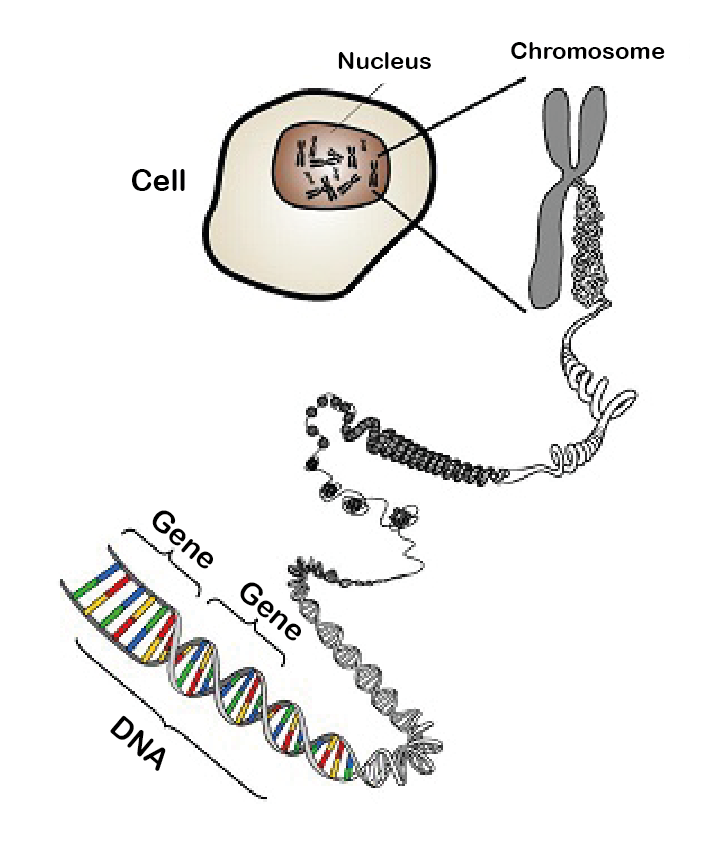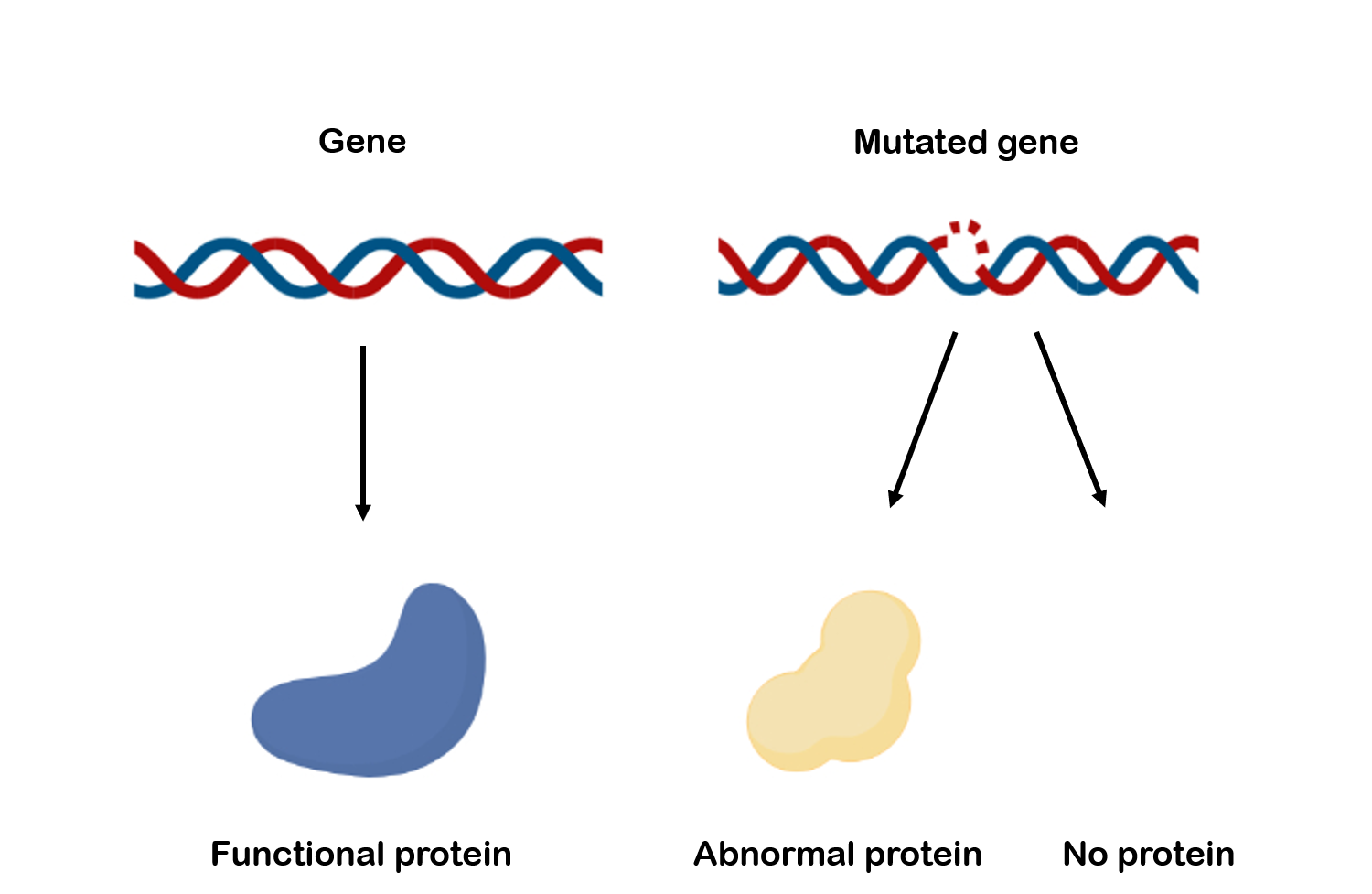When something goes wrong in the development of your brain such that its functioning is impaired, we speak of a neurodevelopmental disorder
The development of our brain is a complex process. Many proteins are involved and many of those proteins often work together in this process. The symptoms of neurodevelopmental disorders therefore show many overlapping problems. Common symptoms are intellectual disability, learning and behavioral problems, autism, problems with motor development and / or epilepsy.
Most neurodevelopmental disorders are caused by an error in the genetic material, the DNA.
All our body cells possess a 
code on which all our hereditary characteristics ("genes") are stored, our DNA. If you unroll the DNA of 1 cell, you would get a very thin wire about 2 meters long. In order for it to fit into our cells, the DNA is rolled up into chromosomes. We have 23 chromosome pairs in our cells. You inherit 1 of each pair from your mother and 1 from your father.
Our chromosomes have thousands of genes, the hereditary properties. Genes are delineated pieces of DNA that contain the information for making proteins, a kind of recipe. These proteins determine, for example, your hair and eye color, height and many other properties, for instance your IQ. Proteins ensure that the cells, and therefore our body and brain, function properly.
Small changes in the genetic code occur frequently. Compare it to making a typing error while typing a recipe. Often such a change does not cause a problem, but sometimes the gene becomes unreadable. We call such a mistake in DNA a mutation. This change in a gene also changes the protein for which it contains the code. The protein sometimes no longer works at all, or less well, or sometimes the protein does things it is not supposed to do. You can inherit a mutation from your father or mother, but you can also have a new mutation in your own DNA that was not present in the DNA from your father or mother.

While there are many overlapping symptoms in neurodevelopmental disorders, there are also important differences. It is therefore important to find out which gene has been mutated in order to optimize patient care. That is why we perform genetic tests in clinical genetics.
We want to improve the quality of life of patients diagnosed with a genetic neurodevelopmental disorder. We do this by providing highly specialized care. This care is additional to the standard care you get at a local hospital (like the additional performance (‘ENCORE’) at the end of a concert) and does not take over the regular care you receive from your regular doctor. We optimize patient care through standardized follow-up. In this way we hope to develop our expertise. In addition, we strive for better coordination between the various specialists involved within and outside the ENCORE expertise center. It is important for the child and the parents that all consultations and examinations take place in one day as much as possible. Finally, the center offers the opportunity to participate in scientific research to gain more insight into the disorders, and thus improve the treatment of the disorders and the diagnosis. We focus primarily on the children. When the patients are 18 years old, they will go to the experts from adult medicine (transition clinic).
